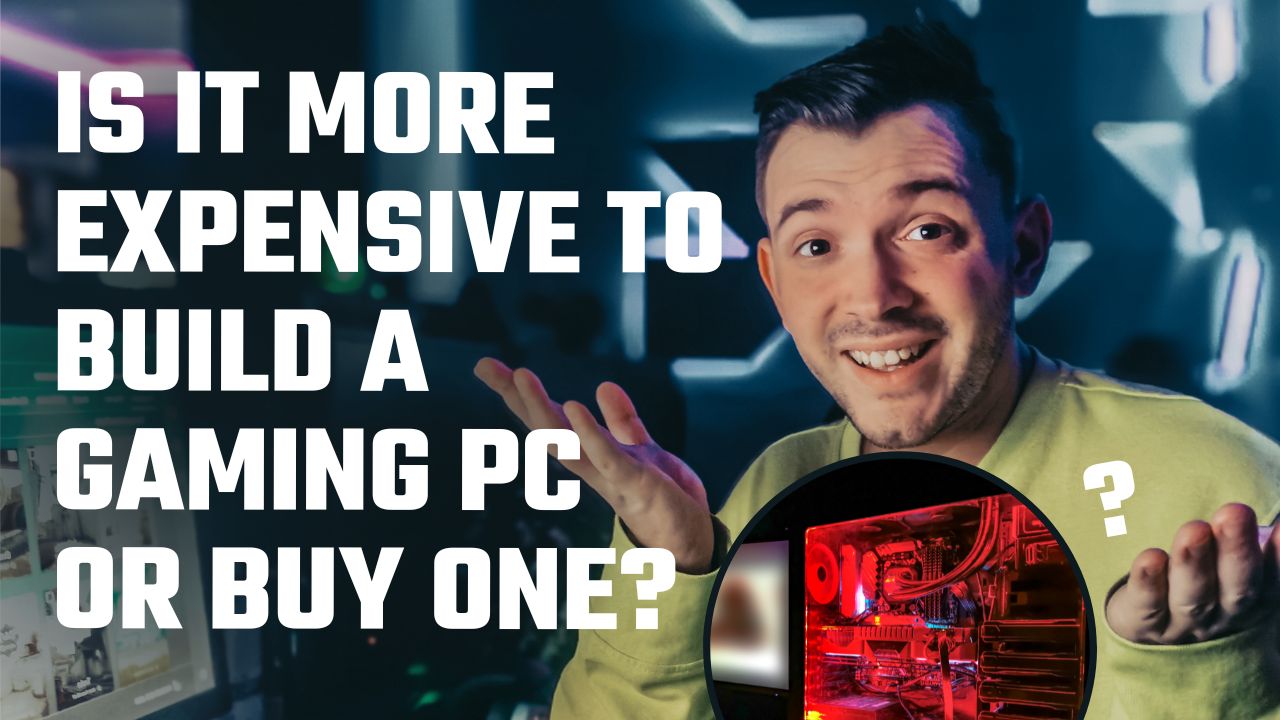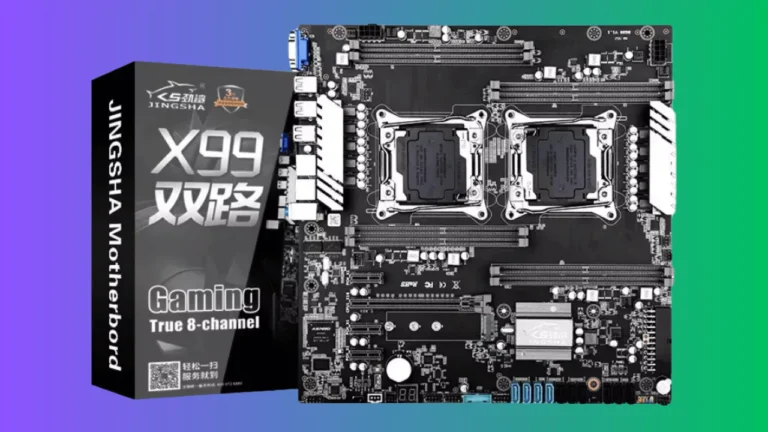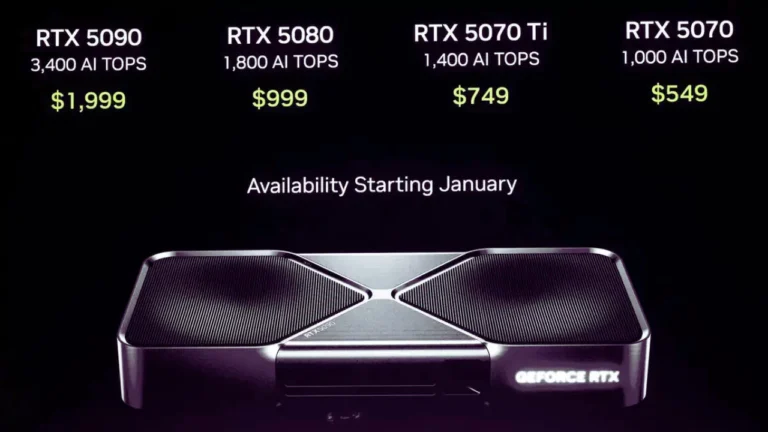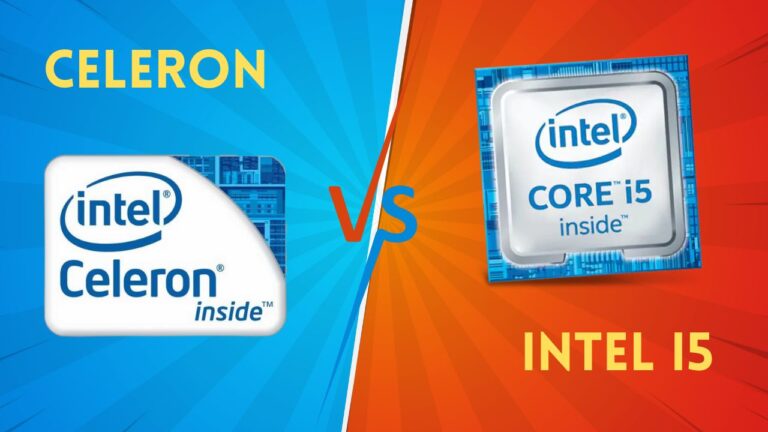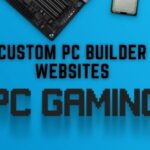I’ve been a passionate gamer for as long as I can remember and I stay up-to-date on the latest tech and gaming trends. One of the top questions that I get asked by friends who are looking to build their own gaming PCs is, “Is it more expensive to build a gaming PC or buy one?” Well, that’s what I’m here to explore! Join me on this journey as I compare the costs of building your own Gaming PC versus buying one and uncover which.
When the time came to purchase a gaming pc, I was torn between building my own and purchasing one pre-made. I had heard that it could be more expensive to build a gaming pc rather than buy one and wasn’t sure if this was true. With this as my motivation, I set out on a journey of research and exploration in order to answer the question posed – is it more expensive to build or buy a gaming pc?
To answer this question, I needed to acquire an accurate understanding of the costs associated with building your own computer and what factors influence those costs. To do this, I compared the cost of individual components for both pre-built models and those that could be used for building your own customized system. In addition, I researched additional costs involved in setting up and maintaining any type of PC such as software updates, protection from viruses or malware, etc.
By examining the cost differences between pre-made systems and customized ones, along with other expenses involved with owning any type of PC such as maintenance costs and software purchases, I was able to determine which option is more cost-effective – building your own or purchasing one ready-made?
What I Learned About Building a Gaming PC
I recently decided to compare the cost of buying a pre-built gaming PC, to the cost of building one of my own. I was curious: which would be more expensive? Through research and personal experience, I learned that it can be considerably cheaper to build your own gaming PC.
The first thing I needed to consider was how much I was comfortable spending on components. After deciding on a budget, I researched the best components and where I could find them at lower prices. Different components such as cases, RAM, CPU, and GPUs are essential for a good gaming PC setup, and getting top-quality components could make all the difference in my experience.
From there, my next step was deciding which operating system – Windows or Linux -to go for. Even though some parts can be reused from old PCs, most of the parts will have to be bought new if you are building a gaming PC from scratch.
One major advantage of building your own PC is being able to handpick stock – this means being able to save money on specific components that are compatible with each other; for example, you don’t need high-end graphics cards if you aren’t playing graphically intensive games! Furthermore, coolers aren’t necessary if you’re not overclocking CPUs or GPUs – so you can save some additional money by avoiding those too!
Overall, when considering what kind of machine type fits your needs and budget best – it may end up being cheaper in the long run— especially if you plan ahead – by doing proper research into what each component does before buying it. This way you know exactly what kind of performance increases (or decreases) you will get when upgrading any part of your new build – opposed to just blindly buying parts without researching first!
What I Learned About Buying a Gaming PC
When I was in the market for a gaming PC, I wanted to make sure I had the best computer for my needs at the most affordable price. After doing some research, I learned there are two options: building or buying one that’s already assembled.
In terms of cost-effectiveness and getting maximum performance, the building is typically going to be the better option. It may take more time and effort on your part, including researching parts and buying individual components and assembling them knowledgeably. However, it’s worth it when you consider that buying preassembled gaming computers can get quite expensive. The lower cost of individual parts can often make up for a lack of expertise in assembly as well as any extra costs associated with having it professionally done (if necessary).
However, if you’re not comfortable with tinkering and assembling parts yourself, then buying a preassembled unit may be worth considering. Assuming that a reputable brand was used when it was assembled you can rest assured that all components will work together without issue and you have the bonus of being able to return it if needed due to a manufacturer defect or upgrade later on if need be.
The choice is ultimately yours depending on your comfort level with technology – either way, investing in a gaming PC can provide hours of enjoyment. Whichever route you choose just make sure to conduct adequate research before making your purchase so you know what features are important to measure performance against the cost for optimal gaming experience excellence.
Pros and Cons of Building a Gaming PC
When deciding how to get the best gaming setup for your needs, there are two main routes you can take – build a custom gaming PC or buy a pre-built one. Regardless of which route you choose, both come with their own set of pros and cons.
Building a gaming PC from scratch can give you great performance while also providing the satisfaction of creating something on your own. By selecting the perfect parts to fit your budget and needs, you’ll be able to build the perfect machine for your exact gaming requirements. Ultimately, the performance will be higher than buying pre-built machines because it’s tailored specifically to you. Additionally, you have much more control over what components go into it so if anything ever fails as long as it’s out of warranty, parts can easily be switched out or upgraded individually rather than having to replace an entire computer when something goes wrong.
On the other hand, pre-built gaming computers can save you time and money depending on what specifically is included in each model compared to custom building. For one thing, pre-built PCs tend to include better warranties and technical support since they come from well-known companies that sympathize with their customers’ issues and look out for them. This gives a lot of peace of mind that if something goes wrong all you need do is contact support and everything will be fixed quickly with minimal hassle, unlike large manufacturers where several hoops may need to jump through first before even getting into contact with support about any issues that may arise with hardware or software related problems. However, this comes at an additional cost as pre-built machines tend to have steeper prices than building one yourself due mainly to added markups by the manufacturer which could put off some on tighter budgets who would rather prefer curating their own components piece by piece in order craft their ideal setup instead of settling for whatever “deal” they could find off sites such amazon or other online retailers who could or could not offer lower prices than elsewhere as well as having higher shipping costs depending on what was being bought specifically.
Pros and Cons of Buying a Gaming PC
If you’re considering buying a gaming PC, there are a few things you’ll need to consider. It can be more expensive than building one yourself, but there are advantages and disadvantages you should explore before making the purchase.
Pros:
- Reliable performance – The prebuilt gaming PCs on the market today are consistently updated with the latest technology and have been meticulously tested by professionals to ensure their reliable performance. You can trust that your gaming PC will meet or exceed your expectations no matter what game or adventure you choose.
- Wide range of options – When you buy a pre-built computer for gaming, you can select from an array of options designed especially for gamers with different budget requirements and preferred specifications. With these options, it’s easy to find a gaming machine that suits your needs and preferences perfectly.
Cons:
- Costly upfront investment – Prebuilt computers tend to be more expensive than those built from scratch because they come with all the necessary parts included in one package. Even after weighing all factors – cost, power, compatibility, etcetera – some may still find it difficult in justifying such a hefty expense for an item that could become quickly outdated as gaming technology advances over time.
- Less control over performance – Many gamers enjoy the thrill of overclocking components to push their machines as fast as possible; however, this cannot be done when buying premade PCs due to safety checks put in place by manufacturers. If you wish to tinker around inside your rig then going down the build route is best for you.
My Personal Experience Building and Buying Gaming PCs
Over the years I have built and bought several gaming PCs for myself and for friends. In my opinion, the best way to get a gaming PC is to build it yourself because it can end up being much more cost effective than buying an already finished system. While buying a pre-built system will usually be more expensive, you don’t have to worry about doing any of the research or building.
It can take time to find all the parts you need for a good gaming PC build, but once it’s done you have a machine that you know performs exactly as expected. Building your own gaming PC also lets you customize it as you go, making sure everything works together perfectly before buying anything unnecessary. Once all the parts are acquired, there’s nothing more fun than putting it all together and seeing that boot process on your monitor!
On the other hand, when making a purchase online or in-store of a pre-built system there is always some degree of uncertainty with performance. You might be getting an amazing deal but there is always the potential to end up with something less powerful than what was advertised or worse – incompatible components.
To conclude, my personal experience has been that building your own PC can be cost-effective and give you peace of mind about performance and compatibility. However, for those who don’t want to spend time researching every component then buying pre-made could also work just fine if you do your homework on available systems first!
Summary and Conclusion
After researching and comparing the cost of building a gaming PC versus buying one, my conclusion is that it can be more expensive to build a gaming PC than buying one. Building your own PC requires a large upfront investment in gaming parts, including a top-of-the-line processor and graphics card, which can drastically increase the price. Additionally, you may need to spend time researching the best prices on different components or looking for discounts. This time investment can add up in the end, making it more expensive to build your own than just purchasing an already-built machine.
Finally, if you don’t have technical experience assembling computers, you may need to hire someone to do the job for you if you don’t want to risk damaging any of your components. All this considered, it may be wiser and more cost-effective to buy a prebuilt gaming PC instead of attempting to build one yourself.
Resources for Further Research
When it comes to building a gaming PC or buying one, both options have unique pros and cons. Personally, I found that the cost of both options can vary greatly depending on the components chosen and the vendor purchased from. Before taking any action I recommend researching prices of parts for a do-it-yourself build online and comparing that to the cost of purchasing a pre-built system from a reputable store.
Additionally, it can be useful to read reviews from other gamers on sites like YouTube and Reddit who have already gone through the process of either building their own PC or purchasing an existing one. Doing so will help you narrow down your choices to find the best option for your budget and gaming needs.
Finally, talking with people you know who have recently built or bought gaming PCs can provide you with more in-depth tips about vendors as well as warranties associated with specific products that might be beneficial for you. All in all, let your research guide you. Good luck!

